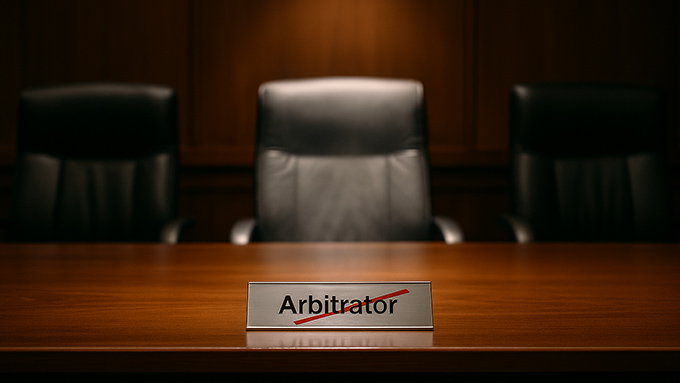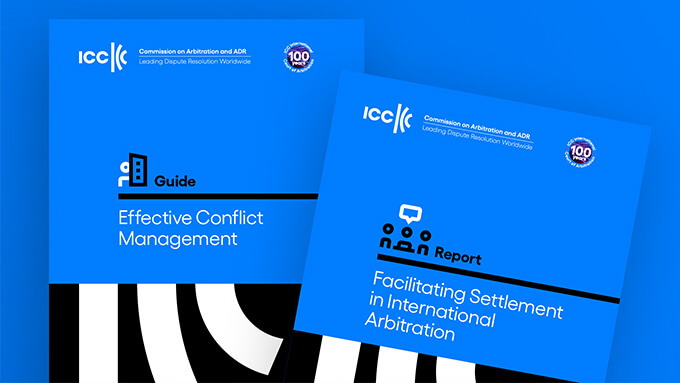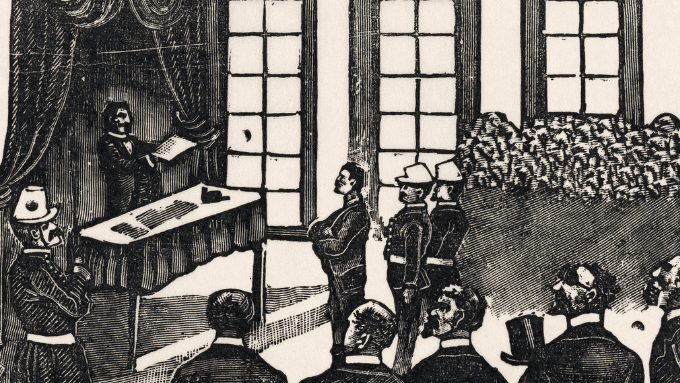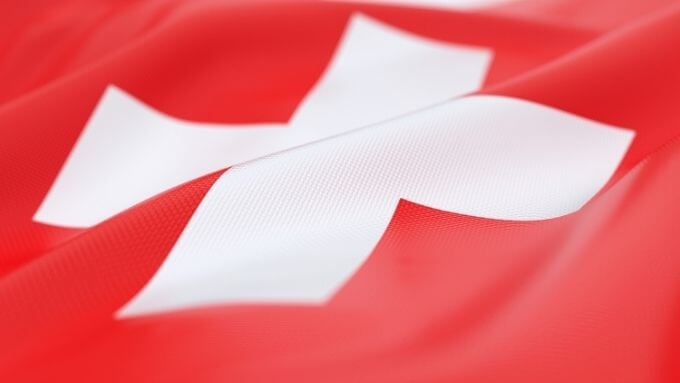ICC Updates Guidance Note to Parties and Arbitral Tribunals
The International Chamber of Commerce (“ICC”) released an update to its Note to the Parties and Arbitration Tribunals on the Conduct of the Arbitration under the ICC Rules of Arbitration (“Note”) which is effective as of 1 January 2019, and applies to all ICC arbitrations, regardless of the version of the Rules pursuant to which they are conducted.
The Note was updated with an intention to enhance transparency in international arbitration and to provide greater efficiency in the conduct of proceedings. The ICC Court President has confirmed that this change is in line with the ICC’s commitment to provide more transparency in their practices, and to increase the efficiency in their arbitrations[1].
Content of the Note
The scope of the Note is broad and aims to provide guidance to the Parties and Arbitration Tribunals. The Note starts by providing general information about the ICC Court and its Secretariat and communications.
The second part includes explanations to the Parties related to the initiation of the proceedings, including information regarding where to submit Requests for Arbitrations, representation, joinder of additional parties, and communication of the reasons of the Court Decisions.
The third part gives guidance to arbitrators concerning their availability, impartiality and independence. This is followed by explanations and/or information regarding the conduct of participants in the arbitration, emergency arbitrators, conduct of the arbitration, expedited procedure provisions, efficiency in the submission of draft awards to the Court, closing of the proceedings, and scrutiny of awards, treaty-based arbitrations, Tribunal’s fees and administrative expenses, as well as decisions as to the costs of the arbitration, correction and interpretation of awards.
Updates
This article examines the most important five changes which are highlighted by the ICC.
Disclosures by Arbitrators and Prospective Arbitrations
Section A of Part III of the Note gives guidance to arbitrators and prospective arbitrators in relation to the Statement of Acceptance, Availability, Impartiality and Independence (‘Statement’) that they must sign.
The arbitrator’s duty to be and remain impartial and independence is of crucial importance in arbitrations. Therefore, an arbitrator’s duty of disclosure and what this duty encompasses has been discussed and reviewed thoroughly. The Note exemplifies certain instances where the arbitrator should inform the parties of certain facts.
With the update, the scope of such disclosure has been widened to include parties that have an interest in the outcome of the proceedings, but whom are not parties to the case. According to new paragraph 24, in assessing whether a disclosure should be made, an arbitrator or prospective arbitrator should consider relationships with non-parties that have an interest in the outcome of the arbitration.
The same paragraph states that the Secretariat may assist the arbitrator or prospective arbitrator in identifying ‘relevant entities’; however, such an indication does not release an arbitrator or prospective arbitrator from his/her duty to disclose with respect to other relevant entities.
Additional Services in respect of the Constitution of Arbitral Tribunals
A new section to the Note has been added which foresees additional services the Secretariat will provide with the nomination or appointment of arbitrators.
Where the parties have agreed to nominate a sole arbitrator or a presiding arbitrator for the confirmation of the ICC Court, or the co-arbitrators a presiding arbitrator, the parties may file a request to the Secretariat. The Secretariat may propose possible candidates and provide non-confidential information on prospective arbitrators.
However, where the parties have agreed on a list procedure (where the parties are involved in the selection of arbitrators), then the Secretariat will provide a list of candidates and submit the same to the parties.
Transparency – Composition of ICC Tribunals and Publication of Awards
For the sake of more transparency, two changes have been made:
The first relates to the publication of information regarding the composition ICC Tribunals. The ICC has traditionally published information relating to arbitrators. This will now include information regarding the sector of industry and the identity of the counsel representing the parties, which will be published as of 1 July 2019.
In relation to the publication of awards, the default provision will now be publication of the same, two years following such notification to the parties. The parties have the right to object to publication of the awards or request a sanitized or redacted version to be published. The ICC has the discretion to either not to publish the award, or may publish a sanitized or redacted version of the same. This will include all awards made from 1 January 2019.
In the case of a confidentiality agreement, the Secretariat will seek specific consent. The Secretariat may seek specific consent in sensitive cases, or cases related to certain sectors of industry.
Data Protection
Priority of businesses has shifted to data protection in the last few years. A reflection of the importance of data protection can be seen in the inclusion of a new section in the Note. As it is known, there are strict rules dealing with data protection that take the form of General Data Protection Regulation (“GDPR”) in the European Union. The ICC has addressed this issue as well.
The section starts by an acknowledgment of the importance of effective and meaningful data protection when the ICC collects and uses such personal data as data controller (as defined in the GDPR), and clearly states that the parties, their representatives, arbitrators, administrative secretary, witnesses, experts, and any other individuals that may be involved in any capacity in the arbitration, agree that their personal data will be collected, transferred, archived for the purposes of arbitration proceedings, and that such data may be published.
Treaty-based Arbitrations and Submissions by Amici Curiae
With the increase of investor-State arbitrations administered by the ICC Court, the Note includes certain clarifications.
In consideration of the nature of treaty-based arbitration and for the sake of transparency, prospective arbitrators are encouraged to state in their curriculum vitae a complete list of the treaty-based cases in which they have participated in as arbitrator, expert or counsel.
Paragraph 140 of the Note makes reference to the adoption of UNCITRAL Rules on Transparency in ICC treaty-based arbitrations. The Note states that in such cases, the Secretariat may act as the repository of published information.
Scrutiny of awards is a task the ICC Court takes very seriously. In accordance with the sensitivity and expertise required for examination of treaty-based awards, the draft awards will be scrutinized by the President and/or Vice-Presidents of the Court and Court members with the relevant experience in investment treaty arbitration as set out in paragraph 141 of the Note.
The Note sets a different time frame for the publication of treaty-based awards. Treaty-based awards will be published within six months from their notification, as opposed to the two-year timeframe mentioned, above, for other awards. The parties’ right to object to the publication of the award is also acknowledged.
The Note also clarifies that in accordance with Article 25(3) of the Rules, arbitral tribunals may, after consulting the parties, adopt measures to allow oral or written submissions by amici curiae and non-disputing parties.
Duties of Administrative Secretaries
The tasks undertaken by administrative secretaries have been a subject of debate. The ICC, prior to the update to the Note, had a more restrictive approach with respect to the tasks an administrative secretary could perform. The tribunals are not permitted to delegate all or part of their decision-making function. The tribunals must tread cautiously on this point. According to the Note, a secretary may draft correspondence and send it on behalf of the tribunal, prepare draft procedural orders for the tribunal’s review, and draft factual portions of the award, such as the summary of the proceedings, the chronology of facts and the summary of the parties’ positions.
Conclusion
The ICC has taken another step for the better conduct of the proceedings, and has updated the Note, accordingly. Of particular note, the publication of awards and information relating to the composition of arbitral tribunals will go further to better serve the public.
[1] For the comment made by the ICC Court President Mr. Alexis Mourre, in relation to the update, please see: https://iccwbo.org/media-wall/news-speeches/icc-issues-updated-note-providing-guidance-parties/ (Access date: January, 2019).
All rights of this article are reserved. This article may not be used, reproduced, copied, published, distributed, or otherwise disseminated without quotation or Erdem & Erdem Law Firm's written consent. Any content created without citing the resource or Erdem & Erdem Law Firm’s written consent is regularly tracked, and legal action will be taken in case of violation.
Other Contents

Emergency arbitration addresses the need for interim protection before the arbitral tribunal is constituted in institutional arbitrations. Arbitral institutions establish short timeframes to ensure parties can obtain interim relief quickly. For example, the International Chamber of Commerce (“ICC”) requires that the emergency...

International arbitration remains the preferred mechanism for resolving complex cross-border disputes. Yet despite its advantages—neutrality, enforceability, flexibility—arbitration is frequently criticized for being too slow, too expensive, and too procedurally heavy. Often, parties proceed through hearings and...

For arbitral awards rendered in international commercial arbitration to produce legal effects in foreign jurisdictions, they must be subjected to proceedings for “recognition” and “enforcement.” This process is governed by the New York Convention as well as by the provisions of the Law on Private International Law...

Arbitrability, the determination of whether a specific subject matter can be resolved through arbitration, constitutes a fundamental aspect of arbitration within the scope of international commercial dispute resolution. This concept draws a delicate balance between party autonomy—a fundamental principle of arbitration...

The recognition, enforcement, and annulment of foreign court and arbitral awards in Türkiye are processes in which public policy emerges as one of the most critical criteria for review, both in theory and in practice. The Court of Cassation decisions determine the direction of case law regarding the scope and...

As is well known, the action for annulment of objection is a special type of lawsuit regulated under Article 67 of the Turkish Execution and Bankruptcy Law No. 2004 (“EBL”). The primary objective of this action is to nullify a debtor’s objection to execution proceedings. Despite its procedural function of facilitating...

On 16 December 2024, the London Court of International Arbitration (“LCIA”) released its third batch of challenge decisions covering the period from 22 July 2017 to 31 December 2022. The LCIA has also issued a detailed commentary that identifies key legal themes and analytical trends, offering practitioners...

The International Chamber of Commerce (“ICC”) has published its report on the dispute resolution statistics for 2023 (“Report”) , shedding light on the evolving landscape of international arbitration...

Syndicated loans undoubtedly hold a significant position among global financing models. In 2023 alone, 3,655 syndicated loans were provided to companies in the US, with their total value reaching USD 2.4 trillion...

Preliminary attachment refers to the temporary seizure of a debtor's assets to secure a creditor's claim. While it serves as a vital instrument for safeguarding the rights of creditors, it is subject to specific and stringent conditions under Turkish law to prevent any potential misuse...

One of the most important reasons for parties to choose arbitration is the opportunity to freely choose their arbitrators. This freedom granted to the parties also distinguishes arbitration from proceedings before state courts, where the parties are deprived of the power to determine the judges who will conduct the...

The 6th Civil Chamber of the Court of Cassation ruled on October 12, 2022, that national courts have jurisdiction over objections to provisional measures in international arbitration disputes...

The declaration of intent to resolve disputes through arbitration is the fundamental constituent element of an arbitration agreement. To speak of a valid arbitration agreement, the parties' intention to arbitrate must emerge in a way that leaves no room for dispute...

In the wake of the evolving dynamics of commercial transactions, the Netherlands Arbitration Institute Foundation (NAI) announced new arbitration rules . 2024 NAI Arbitration Rules are in force as of 1 March 2024 and will be applicable on proceedings filed on or after this date...

With the global shift to online activities, domain names play a crucial role in identifying businesses. It is more common than ever for a domain name to be registered that is confusingly similar to a trademark or service mark...

The ICC Commission on Arbitration and ADR (“Commission”) published a new guide and report with the aim to increase awareness on alternative dispute resolution (“ADR”) mechanisms to prevent disputes and strengthen the relationship between all stakeholders.The Guide on Effective Conflict Management...

Mergers and Acquisitions (“M&A”) are restructuring of companies or assets through various types of financial transactions, such as mergers, acquisitions, purchase of assets, or management acquisitions. This Newsletter article covers M&A disputes being solved before arbitral tribunals.

In the context of arbitration practice, the principle of revision au fond means that the courts can not examine the merits of a dispute when reviewing an arbitral award. This principle is most commonly encountered in set aside and enforcement proceedings. An arbitral award is evidence of the parties’ willingness...

Under Turkish law, parties may agree on the settlement of disputes that have arisen or may arise, regarding the rights that they can freely dispose of, by arbitration. However, disputes which are not subject to the will of parties, such as the disputes relating to in rem rights of immovables, bankruptcy law...

On 4 September 2020, a research project “Does a Right to a Physical Hearing Exist in International Arbitration?” was launched by an International Council for Commercial Arbitration (“ICCA”) taskforce. Due to the Covid-19 pandemic, many arbitration hearings were held online. Many institutional rules...

Dubai International Arbitration Center amended its Arbitration Rules on 25 February 2022. The 2022 Arbitration Rules were published on 2 March 2022 and came into effect on 21 March 2022. The Rules will be applied to arbitrations that are filed after 21 March 2022; unless parties agree otherwise...

In the aftermath of the Achmea decision, controversies on intra-EU arbitrations continue. Most recently, the Paris Court of Appeal has annulled two arbitral awards rendered against Poland. Meanwhile, the Higher Regional Court of Berlin has refused to declare that an Irish investor’s ICSID claim...


Under Turkish law, the legal remedy that can be applied against arbitral awards is an annulment action. Law on International Arbitration No. 4686 (“IAL”) finds its application area in arbitration proceedings where Turkey is the place of arbitration...

It is well known that following a decision of the Court of Justice of the European Union, problems arose related to arbitration of intra-EU disputes, and particularly arbitration under the Energy Charter Treaty...

Arbitration in corporate law contains controversial elements in many respects, especially the issue of arbitrability. Even in legal systems where these disputes are considered to be arbitrable, uncertainties remain on whether an arbitration clause can be included in the articles of...





Arbitration has benifited from a great increase in the use of technology which has directly effected the conduct of proceedings. More particularly, with digitalization, the way that we conduct arbitration proceedings has been changed to reflect the current needs of parties, with an aim of increasing time...
































































